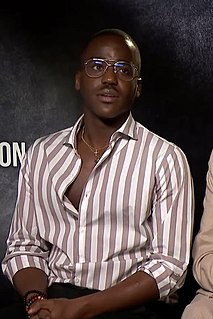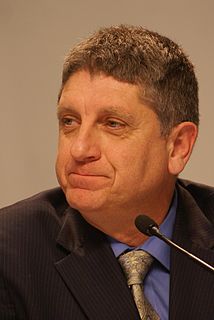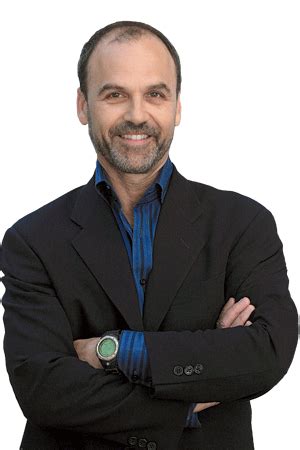A Quote by Cornel West
I grew up in traditional black patriarchal culture and there is no doubt that I’m going to take a great many unconscious, but present, patriarchal complicities to the grave because it so deeply ensconced in how I look at the world. Therefore, very much like alcoholism, drug addiction, or racism patriarchy is a disease and we are in perennial recovery and relapse. So you have to get up every morning and struggle against it.
Quote Topics
Addiction
Against
Alcoholism
Because
Black
Culture
Deeply
Disease
Doubt
Drug
Drug Addict
Drug Addiction
Every
Every Morning
Get
Get Up
Going
Grave
Great
Great Man
Grew
Grew Up
How
Like
Look
Many
Morning
Much
No Doubt
Patriarchal
Patriarchy
Perennial
Present
Racism
Recovery
Relapse
Struggle
Take
Therefore
Traditional
Unconscious
Up
Very
World
Related Quotes
My feminism is what came squarely up against my faith. There's a lot of ecstatic post-patriarchal Christians who have stuff they do with that. But at that point, you're doing Christianity with a double-superscript. The Bible, and especially the book of Genesis, is pretty unapologetically patriarchal.
I still think it's important for people to have a sharp, ongoing critique of marriage in patriarchal society — because once you marry within a society that remains patriarchal, no matter how alternative you want to be within your unit, there is still a culture outside you that will impose many, many values on you whether you want them to or not.
God established patriarchy when he established the world. God established a patriarchal world. If we're going to have true reformation in America, it is because men once again, if I may use a worn out expression, have righteous testosterone flowing through their veins. They are not afraid of the contempt of their contemporaries. They are not here to get along. They are not even here to take issue. They are here to take over!
The struggle of democratic secularism, religious tolerance, individual freedom and feminism against authoritarian patriarchal religion, culture and morality is going on all over the world - including the Islamic world, where dissidents are regularly jailed, killed, exiled or merely intimidated and silenced.
There is no "true Islam," just different interpretations. Since I brought up patriarchy, let me make one thing clear. I am not singling out men; I am addressing the issue of inequality of genders. A patriarchy does not only not accept the equality of the sexes, it also has a hard time understanding the principles of democracy and its essence. Women are the victims of this patriarchal culture, but they are also its carriers. Let us keep in mind that every oppressive man was raised in the confines of his mother's home. This is the culture we need to resist and fight.
Patriarchy, like any system of domination (for example, racism), relies on socializing everyone to believe that in all human relations there is an inferior and a superior party, one person is strong, the other weak, and that it is therefore natural for the powerful to rule over the powerless. To those who support patriarchal thinking, maintaining power and control is acceptable by whatever means.
In many ways, everything about my upbringing decreed that I wouldn't write a memoir because in the world where I grew up, in Chicago in the Fifties and Sixties, one key way of protesting ourselves - 'we' meaning black people - against racism, against its stereotypes and its insults, was to curate and narrate very carefully the story of the people.
I think culture is where things change in us deeply. But right now, I think that people are very traumatised. They are very scared. Having grown up in a house with a perpetrator who was violent every day and terrorising every day, I feel like that this country is suddenly very much like the house and the family I grew up in. Every day we are glued to our phones, glued to our television; "What is this psychopath going to do next? How will he embarrass us? Who will he bully or hurt or humiliate today? It's so easy to get locked into a syndrome where the perpetrator is ruling your life.
I would say I'm black because my parents said I'm black. I'm black because my mother's black. I'm black because I grew up in a family of all black people. I knew I was black because I grew up in an all-white neighborhood. And my parents, as part of their protective mechanisms that they were going to give to us, made it very clear what we were.
The problem is that white people see racism as conscious hate, when racism is bigger than that. Racism is a complex system of social and political levers and pulleys set up generations ago to continue working on the behalf of whites at other people's expense, whether whites know/like it or not. Racism is an insidious cultural disease. It is so insidious that it doesn't care if you are a white person who likes Black people; it's still going to find a way to infect how you deal with people who don't look like you.


































